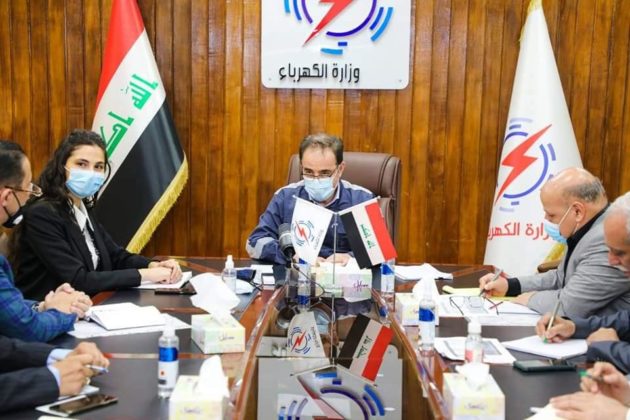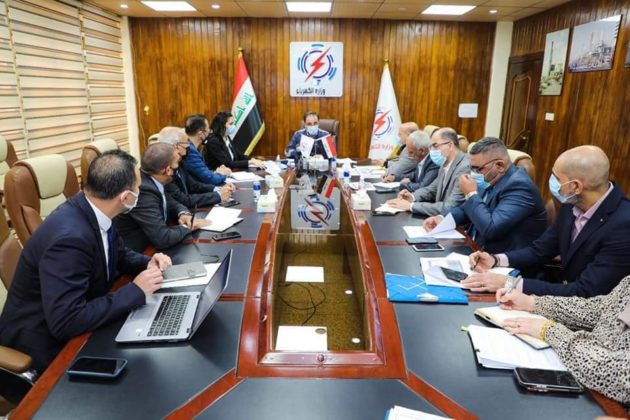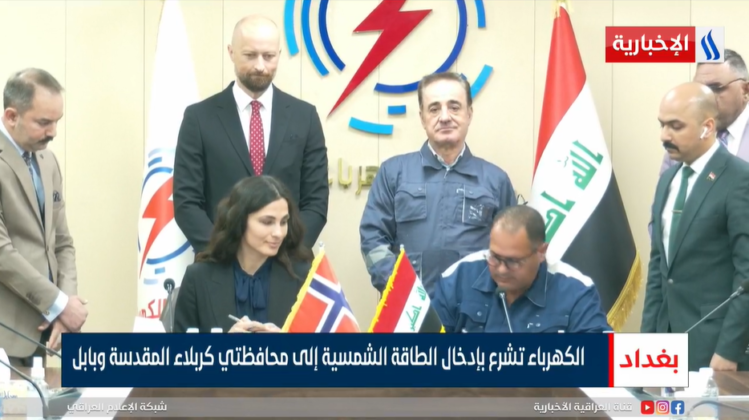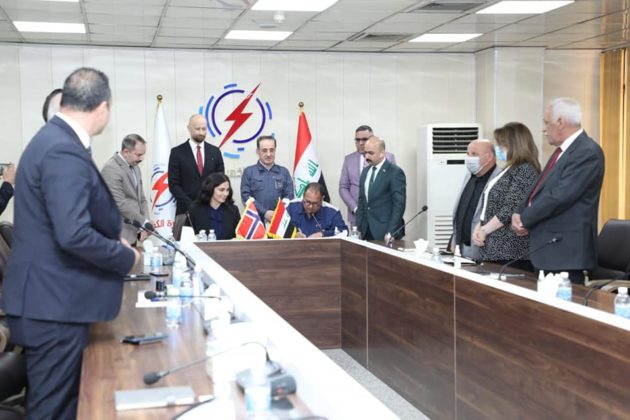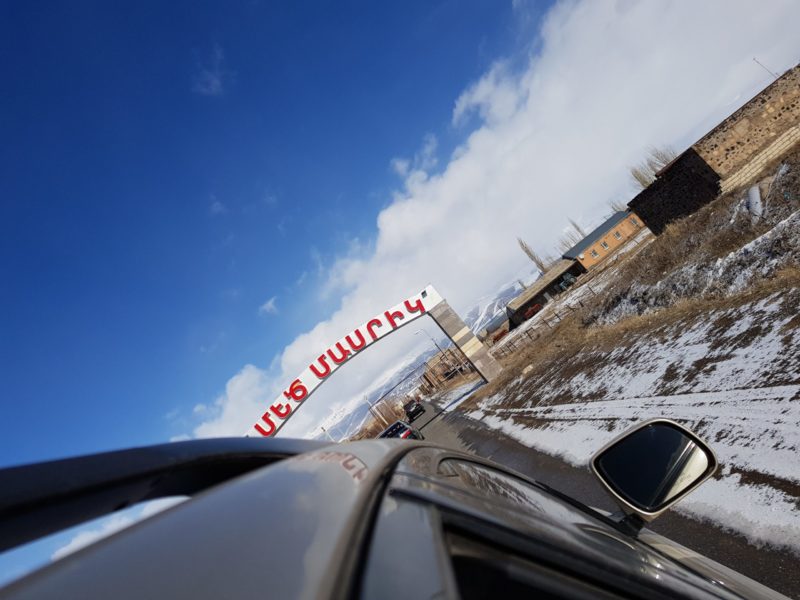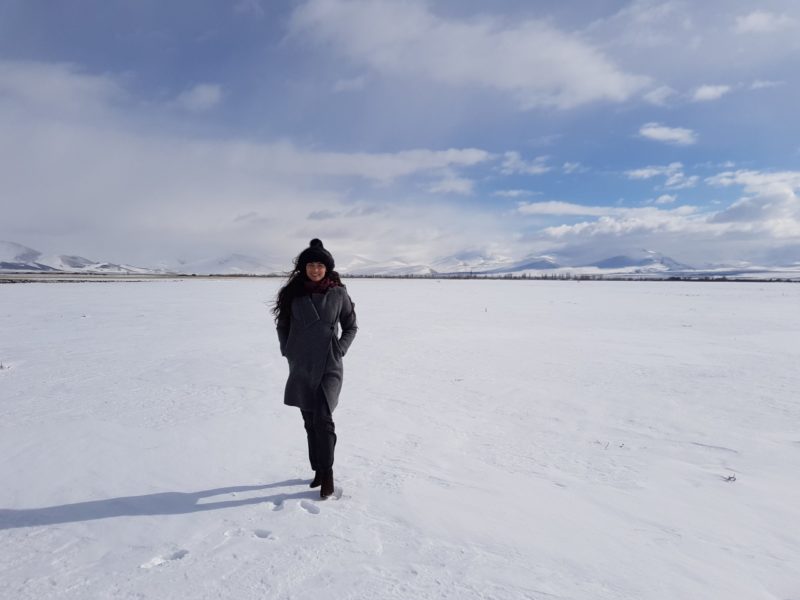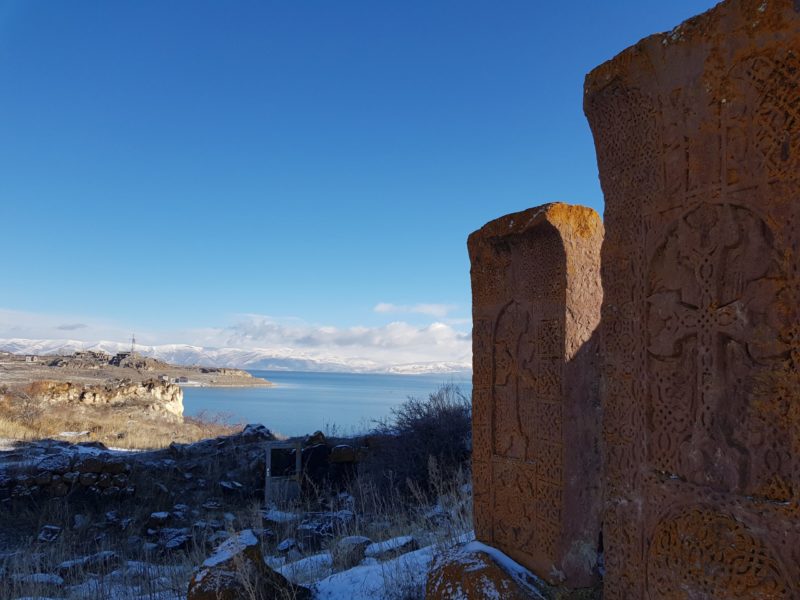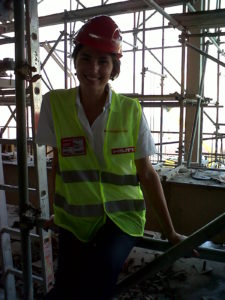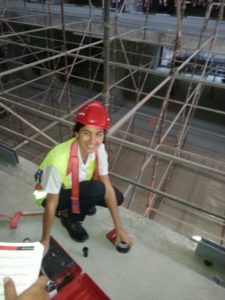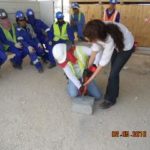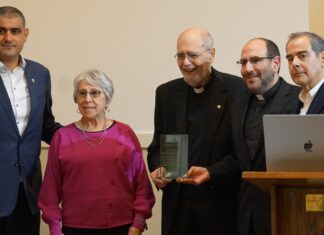PARIS – As climate change becomes the hot topic of the 21st century and the world starts shifting towards clean energy sources replacing fossil fuels, renewable energy from the sun, wind and water appears to offer an optimal solution. Angela Melkonian works to realize major projects in this field and has played an important role in bringing solar energy to Armenia, Iraq, Tunisia, Egypt and elsewhere in the Middle East and North Africa. She also is involved in Armenian cultural projects, dragon boat racing and fashion modeling.
Born in Beirut, Melkonian is a third-generation Armenian Lebanese who currently works for Scatec, a Norwegian renewable energy firm, in its Paris offices. In early October, headlines in the international media reported a historic framework agreement between a consortium led by Scatec and the Iraqi government to build a 525 megawatt solar project in the governates of Karbalaa and Babylon. Iraqi Oil Minister Ihsan Abdul Jabbar said the value of the agreement was approximately $500 million. Melkonian played a key role in the negotiations for this first large-scale solar energy project in Iraq.
Iraq
She said that while the recent framework agreement is a high-level accord, the power purchase agreement (PPA) that now is being discussed is even more important as it will cover all the technical, financial and legal aspects of this transaction.
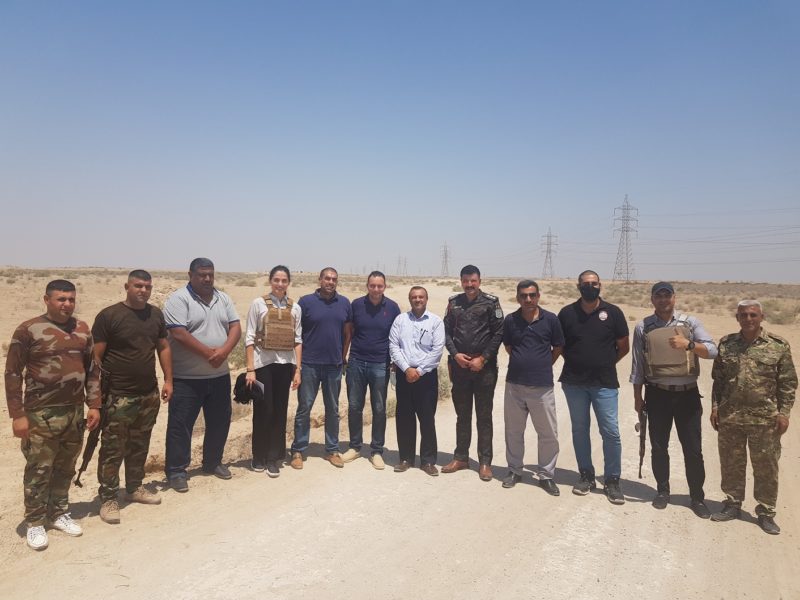
Melkonian provided some background information to this deal. Iraq is seen generally as an oil producing country, but it also has a huge electricity deficit because it exports its oil as a source of income and consequently is heavily dependent on natural gas arriving from Iran. Recently, the US has been pressuring it to stop this commerce with Iran, which gave it more incentive to become self-sufficient and develop other energy sectors. Consequently, in 2020, it launched a tender including seven projects in five different projects for a total of 755 megawatts. Scatec focuses on emerging markets, and it decided to give a very competitive bid, together with its two consortium partners who have local knowhow due to preexisting projects in Iraq.
The consortium won the two big projects of 225 and 300 megawatts in the two aforementioned regions to the south of Baghdad. Before this, there were only small rooftop projects and one unrealized solar program attempt by the government at a largescale project in 2017. As a gage of scale for readers, a medium-sized industrial warehouse rooftop would produce almost 1 megawatt of solar power and cover its energy needs.




